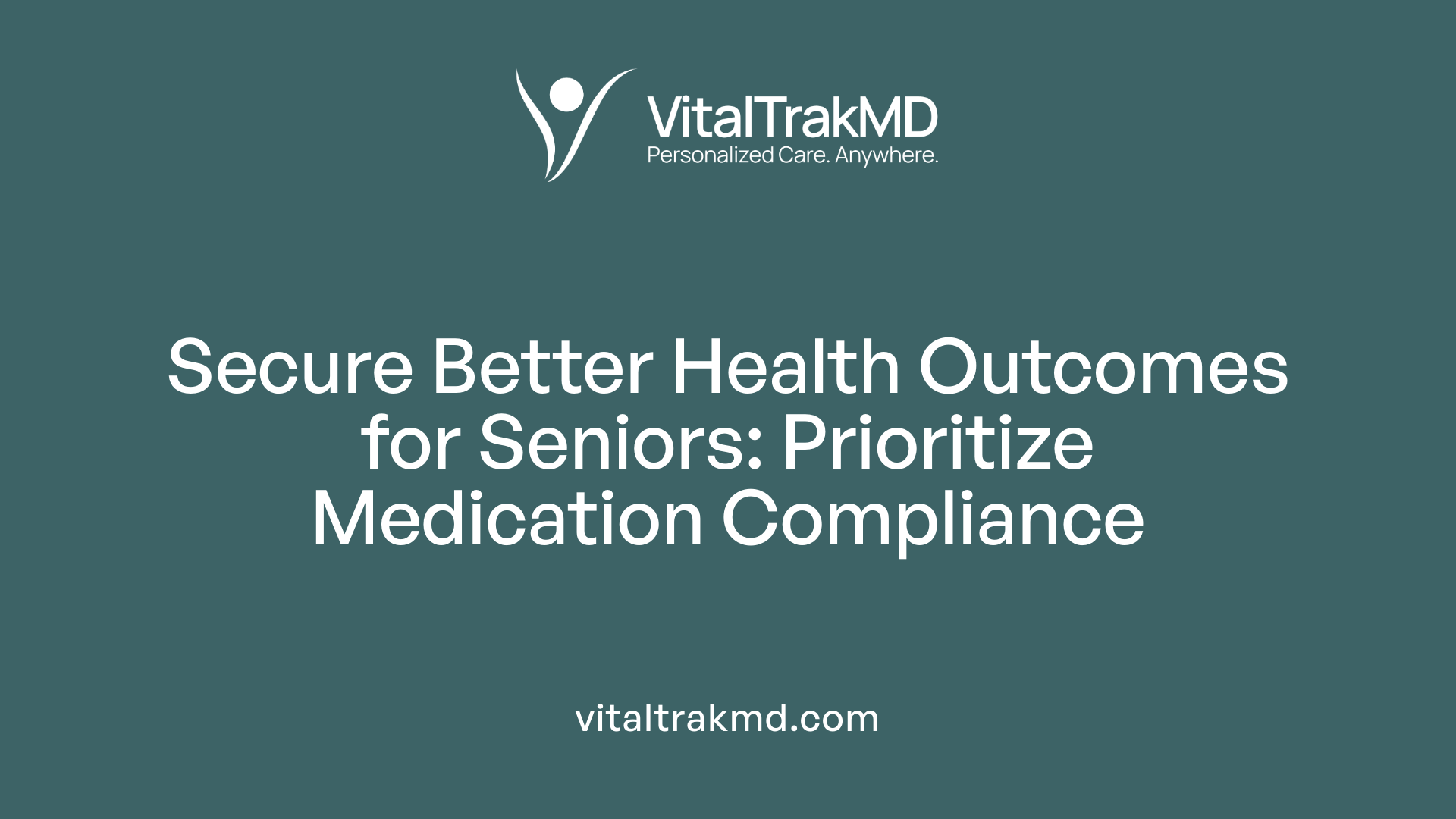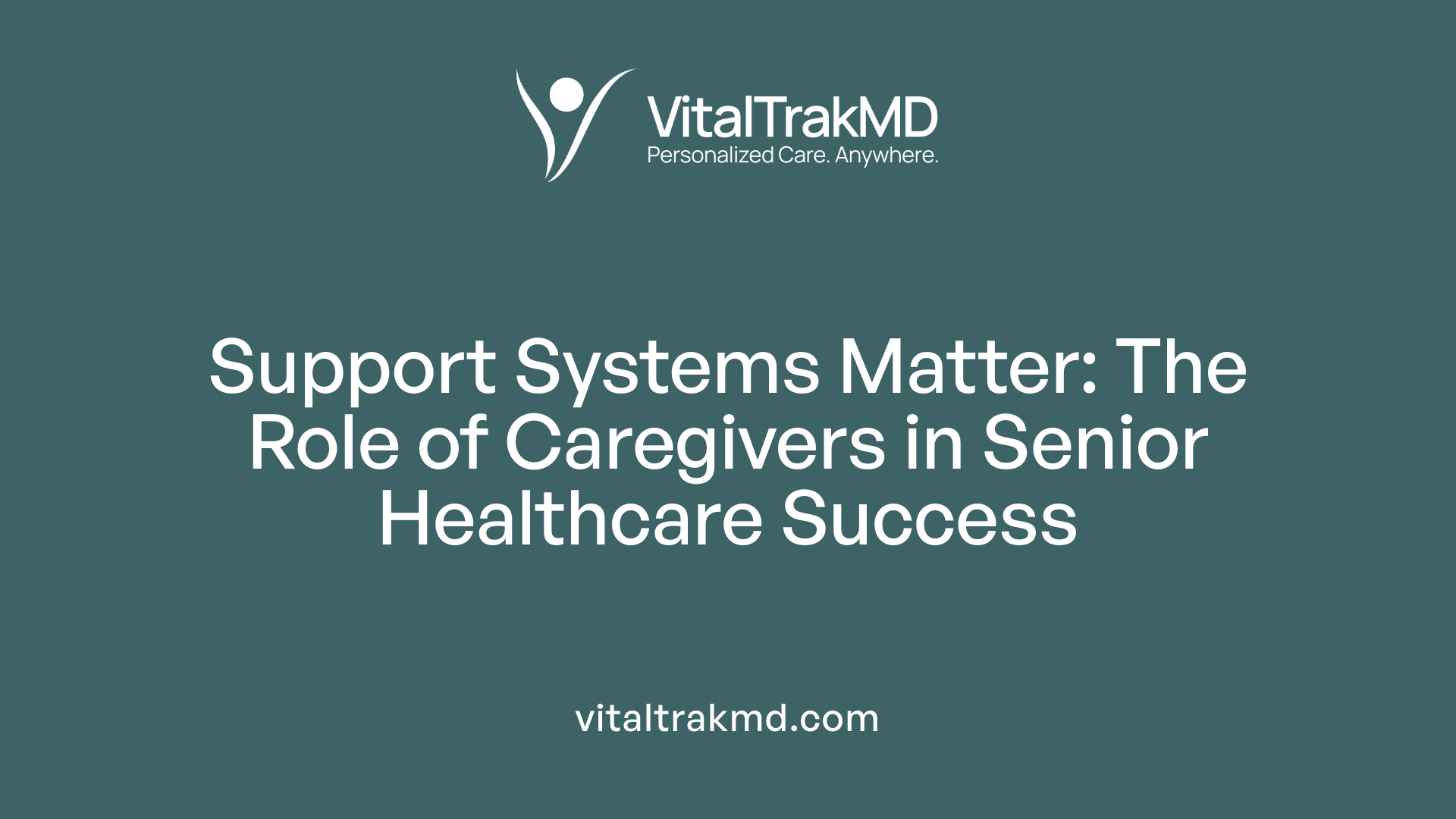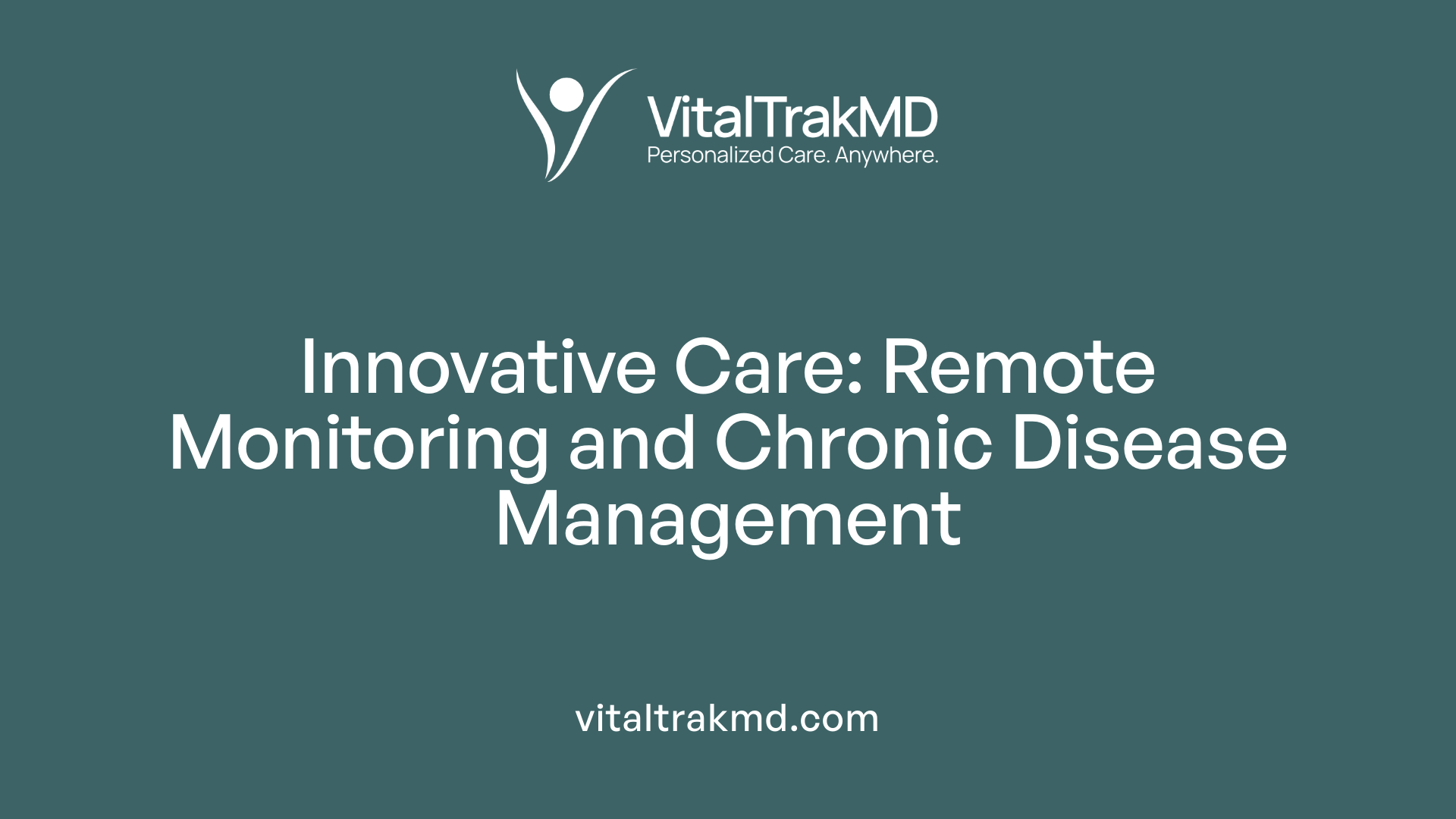How Hybrid Healthcare Improves Medication Adherence in Seniors

The Critical Link Between Medication Adherence and Senior Wellness
Medication adherence remains a pivotal challenge in managing chronic diseases among seniors. Hybrid healthcare models—combining traditional care with digital health technologies—are emerging as effective solutions to enhance adherence, improve health outcomes, and reduce healthcare costs. This article explores how integrated wellness and care programs, bolstered by remote monitoring and medication adherence software, support seniors in maintaining consistent medication routines and overall wellness.
Understanding Medication Adherence and Its Impact on Senior Health

What is Medication Adherence?
Medication adherence refers to how well patients follow their prescribed treatment plans, including taking medications at the right dose and time. For seniors managing chronic diseases like hypertension, diabetes, and depression, sticking to medication schedules is essential for effective health maintenance.
Why is Medication Adherence Important for Seniors?
Medication adherence is crucial for seniors because it helps control chronic conditions, which are common in this demographic. Proper adherence reduces the risk of hospital admissions by preventing disease complications. It also improves health outcomes and quality of life for older adults.
What Happens When Medication is Not Followed?
Non-adherence to medication regimens can lead to worsened health outcomes, increased hospital visits, and even premature death. For the healthcare system, this non-compliance translates into substantial avoidable costs, estimated to be between $100 billion and $300 billion annually.
Economic and Health Benefits of Adherence
Adhering to medication lowers healthcare expenses by reducing emergency care and hospital stays. Seniors who follow their medication schedules often experience fewer complications, better disease management, and improved survival rates. These benefits emphasize why promoting adherence is a critical component of wellness programs targeting older adults.
Medication adherence is not just about taking pills on time; it represents a lifesaving practice that supports better health and economic outcomes for seniors and the broader healthcare community.
The Role of Hybrid Healthcare in Supporting Medication Adherence
How does hybrid healthcare improve medication adherence in seniors?
Hybrid healthcare combines traditional in-person care with cutting-edge digital technologies, such as medication adherence software and remote patient monitoring. This blended approach offers a real-time view of a patient's medication-taking behaviors coupled with personalized reminders and educational content, facilitating better adherence among seniors.
Medication adherence software acts as a crucial digital supplement by offering features like dose reminders, confirmation prompts, data dashboards, and automated alerts. These tools help patients remember to take their medications correctly and enable caregivers and healthcare providers to monitor adherence remotely.
For providers, hybrid healthcare enhances clinical decision-making through up-to-date adherence data, supports workflow efficiencies, and reduces hospital readmissions, which are often linked to medication non-adherence in chronic conditions. Patients benefit from increased engagement via self-tracking, supportive alerts, and educational resources, which are especially helpful for managing complex conditions such as dyslipidemia, depression, hypertension, and diabetes prevalent among seniors.
The integration of these digital solutions with face-to-face interactions ensures that any challenges in medication management are promptly addressed during counseling sessions or follow-ups. For seniors, who often deal with multiple comorbidities and complex medication regimens, this comprehensive support system reduces the risk of missed doses and enhances overall health outcomes.
By successfully merging in-person care with digital adherence technologies, hybrid healthcare programs improve not only medication compliance but also chronic disease management and patient satisfaction, making them essential components of modern wellness initiatives for aging populations.
Medication Adherence Software: Features and Benefits
What are the features of medication adherence software that help seniors?
Medication adherence software is designed with multiple features that support seniors in managing their complex medication regimens accurately and consistently. These technologies offer reminder systems that alert users to take their medications on time, reducing missed or late doses. Dose confirmation features allow patients or caregivers to record when medication is taken, which helps in tracking adherence and avoiding accidental double dosing.
Educational content integrated within these apps informs patients about their medications, potential side effects, and the importance of adherence, empowering users with knowledge to manage their health effectively. Additionally, automated alerts notify patients or caregivers if a dose is missed, prompting timely intervention.
Data dashboards provide a comprehensive overview of adherence patterns for both patients and healthcare providers. For clinicians, these dashboards offer real-time monitoring and clinical decision support to tailor treatments and reduce the risk of hospital readmissions. They also improve workflow efficiency and enhance patient engagement by offering actionable insights.
Patients and caregivers benefit from these features through increased self-tracking capabilities and personalized support, which is particularly valuable for underserved populations. The integration of these adherence tools with existing electronic health records (EHRs) further streamlines data sharing and improves medication management.
Through features like reminders, dose confirmation, educational modules, and data dashboards, medication adherence software plays a crucial role in helping seniors stay on track with their prescribed treatments, resulting in better health outcomes and reduced healthcare costs.
Real-World Implementations: Successful Adherence Technologies
What Are Some Successful Examples of Medication Adherence Technologies?
Medication adherence technologies have evolved significantly, offering various tools designed to improve patients' ability to follow prescribed medication regimens. Notable examples include smart electronic caps that record bottle openings, mobile apps like Medisafe which provide reminders and dose confirmations, smart pill bottles that monitor usage, and biometric screening devices used in wellness programs. These tools not only aid in adherence but also enhance the overall management of chronic diseases.
User Satisfaction and Outcomes
Studies report high user satisfaction with these adherence technologies, as they provide convenient, real-time support that helps patients avoid missed doses. Behavioral reminders and AI interventions integrated within apps have led to better disease management and survival rates, particularly for hypertension, diabetes, and cardiovascular conditions. By encouraging consistent medication use, these technologies contribute to reducing hospital admissions and healthcare costs.
Integration with Existing Healthcare Systems
Integrating medication adherence software with electronic health records (EHRs) optimizes clinical workflows by enabling real-time adherence monitoring and alert systems. This integration facilitates efficient medication management, allowing healthcare providers to intervene promptly when non-adherence is detected. Such comprehensive platforms support both patients and clinicians, ultimately improving treatment outcomes and promoting value-based care.
Biometric Screenings in Wellness Programs Enhance Adherence
How do biometric screenings contribute to medication adherence?
Biometric screenings play a vital role in wellness programs by providing objective health data that reveal early signs of conditions like dyslipidemia and depression. By identifying these health issues promptly, screenings enable seniors to engage more actively in their care plans.
Participation in biometric screenings is linked to improved medication adherence because individuals become more aware of their health status and the importance of following prescribed treatments. This proactive approach encourages patients to manage their chronic conditions effectively, ultimately leading to better outcomes.
A notable study analyzing data from a large U.S. employer demonstrated that involvement in biometric screenings corresponded with higher medication adherence rates for dyslipidemia and depression among seniors. This finding suggests that wellness program components focusing on biometric assessments facilitate enhanced health management by supporting timely interventions and fostering patient engagement in medication routines.
In summary, biometric screenings serve as an essential mechanism within wellness initiatives to boost adherence, especially for seniors managing chronic illnesses, by promoting education, awareness, and consistent treatment compliance.
The Importance of Caregiver and Spousal Support in Hybrid Healthcare

Healthcare cost differences for singles vs couples
Older adults face varying healthcare expenses depending on their living arrangements. While both older singles and couples spend roughly $2,500 annually on recurring healthcare services, singles experience significantly higher non-recurring costs. These include expenses for home health care and nursing home stays, underscoring the financial and practical challenges they face without spousal support.
Role of caregiver support in adherence
Caregiver and spousal support markedly influence medication adherence among seniors. This support provides crucial assistance and encouragement that help seniors manage their medication regimens more effectively. By aiding with reminders, organizing medication, and offering emotional support, caregivers reduce the risk of non-adherence, which is vital for controlling chronic conditions.
Benefits in wellness and care programs
Integrating caregiver support into wellness and care programs enhances health management outcomes for seniors. Programs that recognize and foster this support can improve medication adherence, reduce hospital admissions, and lower overall healthcare costs. For older adults, especially singles who face higher non-recurring healthcare expenses, these supports are instrumental in sustaining their health and independence.
Lifestyle Interventions Complement Medication Adherence in Chronic Disease Management
CHANGE Program overview
The Carolina Heart Alliance Networking for Greater Equity (CHANGE) Program is a community health worker (CHW)-delivered lifestyle intervention targeting cardiovascular disease (CVD) risk in rural, medically underserved, predominantly African American populations in North Carolina. It aimed to foster sustainable health behaviors among adults facing high rates of hypertension, diabetes, and hypercholesterolemia.
Dietary and physical activity improvements
Participants received four monthly counseling sessions promoting a southern-style Mediterranean eating pattern combined with encouragement to increase physical activity. These counseling efforts effectively led to greater consumption of healthful foods such as nuts, fruits, and vegetables, while reducing intake of sugar-sweetened beverages. Additionally, physical activity improved by an average of 45 minutes per week, highlighting the program’s success in fostering lifestyle changes.
Impact on blood pressure and health markers
Encouragingly, the intervention yielded significant reductions in blood pressure, with average decreases of 2.5 mmHg systolic and 2.1 mmHg diastolic readings. The proportion of participants achieving blood pressure control rose substantially. These measurable improvements in key health markers complement medication adherence efforts, crucial for managing chronic diseases and reducing complications.
What lifestyle interventions support medication adherence and wellness?
The CHANGE Program’s comprehensive approach blending dietary modification and physical activity counseling supports medication adherence by improving underlying health and patient engagement. Enhanced lifestyle behaviors work synergistically with prescribed treatments, promoting better chronic disease management and wellness outcomes.
Mental Health's Influence on Medication Adherence and Weight Loss Programs
What role does mental health play in weight loss and wellness programs?
Mental health plays a crucial role in determining how effectively seniors engage with weight loss and wellness programs. Challenges such as depression, anxiety, and emotional eating can diminish motivation and disrupt adherence to both lifestyle changes and medication regimens.
When mental health issues go unaddressed, seniors may struggle to maintain consistent healthy behaviors, leading to poorer outcomes in managing chronic conditions. Conversely, integrating mental health support into wellness initiatives improves emotional well-being, bolsters motivation, and enhances the likelihood that individuals will follow prescribed treatments.
Programs that acknowledge the psychological dimensions of health enable seniors to better cope with emotional barriers, fostering sustained medication adherence and healthier lifestyle choices. In this context, addressing mental health is essential not only for weight management but also for overall health improvement and reduced risk of complications associated with chronic diseases.
Addressing Common Challenges in Medication Adherence and Weight Management

What are some common challenges faced by participants in weight loss programs, and how can they be overcome?
Participants in weight loss and medication adherence programs often face multiple hurdles. Lack of motivation, emotional struggles, time constraints, and insufficient social support are significant barriers that can lead to poor adherence and difficulty in achieving weight management goals.
Strategies to overcome these challenges include setting realistic, personalized goals and encouraging gradual lifestyle changes rather than abrupt shifts. Social support, such as involvement of caregivers or peers, plays a crucial role in maintaining motivation and accountability. For example, spousal or caregiver support has shown to influence healthcare costs and management positively in older adults.
Technology also offers solutions—medication adherence software with reminders, educational content, and self-tracking features helps patients stay on course. Programs like the Carolina Heart Alliance Networking for Greater Equity (CHANGE) illustrate effective tailored interventions that combine counseling, dietary guidance, and physical activity support in underserved populations.
Overall, personalized care that addresses individual barriers alongside supportive technologies and social networks is essential. This holistic approach enhances long-term adherence to treatment and successful weight management, improving health outcomes for chronic conditions such as hypertension, diabetes, and cardiovascular disease.
The Integration of Remote Patient Monitoring and Chronic Care Management in Hybrid Healthcare

How do care programs support individuals in achieving weight loss goals?
Care programs designed for weight loss combine structured, personalized plans with medical oversight to ensure safety and effectiveness. Nutritional counseling, physical activity guidance, and psychological support form the core components, tailored to individual needs.
Remote Patient Monitoring (RPM) plays a vital role by continuously tracking metrics such as weight, physical activity, and vital signs. This real-time data allows healthcare professionals to adjust interventions promptly, which enhances the success of weight loss efforts.
Chronic Care Management (CCM) synergizes weight management within the broader context of chronic disease treatment, offering a coordinated approach for patients with conditions like hypertension or diabetes that can benefit from weight reduction.
Virtual care platforms foster patient empowerment through education and easy communication with care teams. These technologies improve motivation and adherence by providing reminders, feedback, and personalized support.
Benefits to chronic condition management
By integrating RPM and CCM, patients receive ongoing monitoring, timely intervention, and coordinated care. This hybrid model reduces complications, hospital admissions, and improves medication adherence. Tailored counseling, including lifestyle modifications and medication management, addresses multiple facets of chronic diseases.
Empowerment through virtual care
Virtual care tools provide accessible education, self-tracking capabilities, and reminders that encourage patients to take an active role in their health. This empowerment enhances engagement and sustains behavior changes needed for weight loss and chronic disease control.
The Future of Value-Based Care and Medication Adherence Technologies
Why is medication adherence software essential for modern healthcare and wellness programs?
Medication adherence software plays a critical role in managing chronic diseases, especially as populations age and healthcare shifts towards value-based care. These technologies help improve patients' ability to follow prescribed treatments, which is vital for reducing hospital admissions and associated costs.
Trends in chronic disease management
As the prevalence of chronic diseases like hypertension, diabetes, and cardiovascular disease rises, medication adherence becomes increasingly important. Programs incorporating biometric screenings and lifestyle interventions have demonstrated positive health outcomes, including improved medication adherence and reduced disease risk.
Growing importance of medication adherence software
Medication adherence tools offer features such as reminders, dose confirmations, and real-time monitoring. These help patients and caregivers maintain consistent medication use. For healthcare providers, such software supports clinical decisions, workflow efficiency, and reduces hospital readmissions.
Implications for seniors and healthcare systems
Seniors, particularly those managing multiple chronic conditions, benefit substantially from adherence technologies. Improved management leads to better health outcomes and lowers costs by preventing avoidable complications. Integration with electronic health records enhances data sharing and coordination across care teams. As healthcare moves toward value-based models, medication adherence software is essential for optimizing patient wellness and system efficiency.
Towards Better Medication Adherence and Wellness for Seniors
Hybrid healthcare models that combine personalized care, technology, and supportive programs are transforming how seniors manage their medications and overall wellness. By integrating medication adherence software, biometric screenings, caregiver support, and lifestyle interventions, these approaches reduce hospitalizations, enhance quality of life, and help seniors achieve sustainable health improvements. The future of senior care lies in harnessing technology alongside compassionate, tailored programs to ensure every senior benefits from effective chronic disease management and wellness support.
References
- “Impact of Workplace Wellness-Program Participation on ...
- A Hybrid Implementation-Effectiveness Study of ...
- Benefits of Using Medication Adherence Software in ...
- The 5 Best Weight Loss Programs in 2025
- Barriers and Motivators to Weight Loss in People With Obesity
- The Psychological Side of Weight Loss
- How losing weight can impact mental health
- Fast Facts – Mental Health and Obesity | STOP Obesity Alliance
- The Impact of Virtual Care Programs on Weight ...
Recent articles
Want to Feel Better and Live Healthier?
Join hundreds of patients taking control of their health with personalized care that fits their life – not the other way around.
Rated 4.8/5 by 32+ customers







